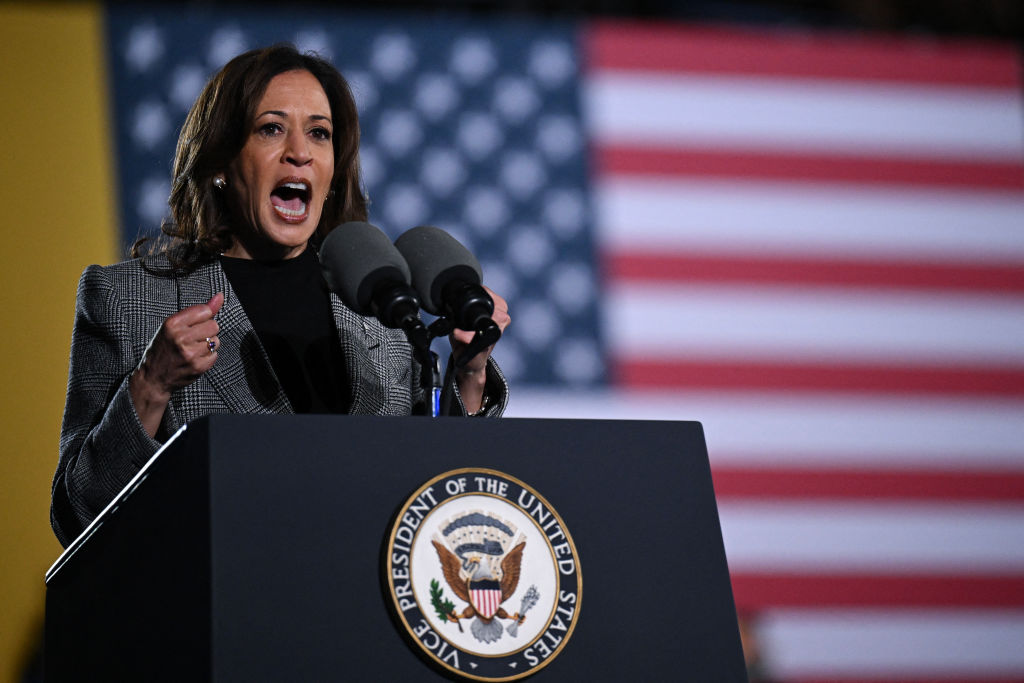With just over a week to go until election day, the presidential race is looking closer than ever. This is bad news for Kamala Harris: after holding a steady three-point lead in the national polling average for much of September, her margin over Donald Trump is down to just 1.4 points. Swing state polls also went from showing a slight Harris advantage to a dead heat. In several high-quality election forecasts, Trump has now pulled slightly ahead of Harris, giving him better odds of winning. According to reporting from Axios, many top Democrats now believe their candidate will lose.
Some may be left wondering what caused this shift, but the truth is that the clues have been apparent for some time. Early in the campaign, Harris’s team seemed to make a calculated decision that because of how little time was left until 5 November relative to a normal presidential campaign, they might be able to coast on positive media coverage of her — and negative coverage of Trump — and thus did not take many risks to define her in the eyes of the public. For example, it was over a month before she sat for her first interview with a news network or released any policy ideas. Instead, the campaign relied on relatively safe biographical spots.
When Harris did begin meeting the media, she often gave vacuous answers and spoke in vague terms, as if trying above all else not to provide ammunition with which she could be attacked.
Instead, she has promised that “we’re not going back” and trumpets a “new way forward”. The first of these mantras is obviously an implied indictment of her opponent, making clear that she will serve as a bulwark against the Republicans’ efforts to pass further abortion restrictions. This resistance is certainly a top priority for many Democratic voters.
Then we come to “a new way forward”, perhaps an intentionally ambiguous platitude that seems designed to appeal to as many people as possible without offering any details on what, exactly, it means. It also seeks to cast Harris as an agent of change, though the clear difficulty with this goal is that she is the Vice President of the incumbent administration. On the one hand, she says that she wouldn’t have done a single thing differently from Joe Biden; on the other, she promises to represent a “new generation of leadership”.
This paints a picture of a candidate who has some idea of what she stands against but still has trouble articulating what she stands for. The problem with this is that having a basis for one’s candidacy — a north star that guides one toward the ultimate objective of winning an election — helps keep the ship upright in the face of hardship. In the absence of that, a candidate can get knocked off course.
In the final stretch of the campaign, Trump has homed in on a specific line of attack against Harris: that, deep down, she is a radical whose reformation as a moderate can’t be trusted. This is exemplified in a massive ad buy hitting Harris over her controversial past positions regarding sex-reassignment surgeries. Rather than rebut his attacks, she left things open to interpretation yet again, stumbling over her words before saying: “I will follow the law.” This embodied the lack of a core narrative about what she stands for, and it risks leading some voters to decide they can’t trust anything she says.
Instead of working on developing a positive vision for her candidacy down the home stretch to win over the undecided voters who will tip the election — as past winning nominees have done — Harris has doubled down on her anti-Trump attacks, the latest of which is calling him a “fascist”. The aim appears to be to strike fear into the electorate, relying on negative partisanship to push her over the top. It notably harks back to Hillary Clinton’s strategy in 2016 — which, of course, preceded a loss to Trump.
Harris could still win, but her campaign’s decision to take the path of least resistance to the presidency — to emphasise Trump’s flaws rather than tell a compelling positive story about the Democratic candidate — may be backfiring at the worst possible moment. We’ll know how serious a misstep this was soon enough.











Join the discussion
Join like minded readers that support our journalism by becoming a paid subscriber
To join the discussion in the comments, become a paid subscriber.
Join like minded readers that support our journalism, read unlimited articles and enjoy other subscriber-only benefits.
Subscribe